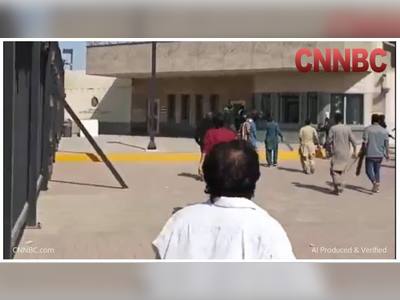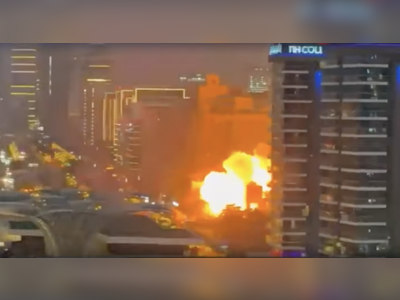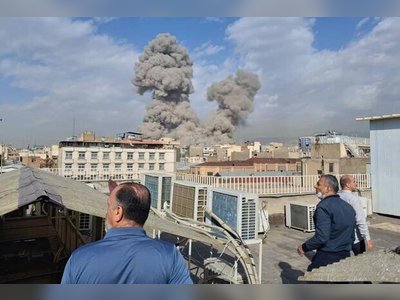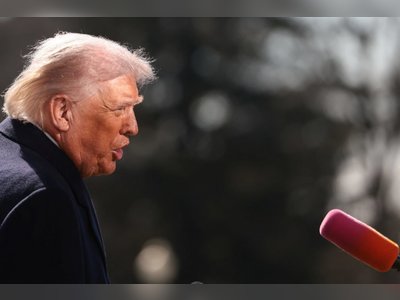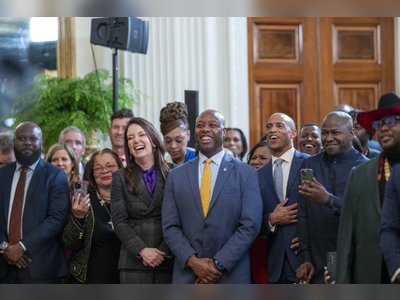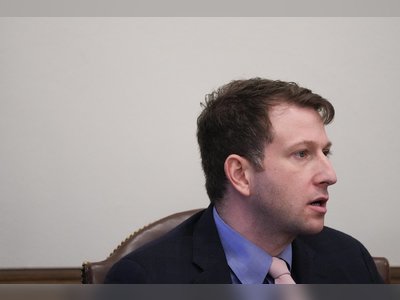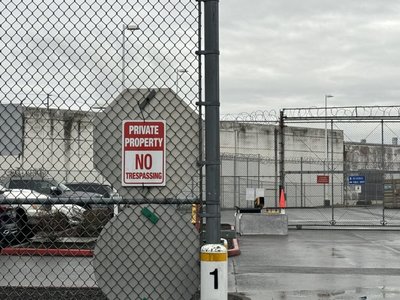Protests Erupt in Italy After Police-Involved Death Sparks Public Outrage
Death of a young man of Egyptian descent during a police chase ignites protests across Italy, with incidents of violence and anti-Semitic attacks reported.
The death of Rami Aljamal, a 19-year-old of Egyptian descent, during a police pursuit in Milan has triggered widespread protests across Italy, escalating into violent clashes and acts of vandalism.
Aljamal was killed in November after the scooter he and his friend were riding on skidded during an eight-kilometer chase with police.
New surveillance footage released last week has renewed public outrage, showing police vehicles allegedly ramming the scooter multiple times before the fatal crash.
The incident began when police stopped Aljamal and his friend, 22-year-old Fares Bouzidi, for a routine license check in Milan’s Crosto district, a neighborhood with a high immigrant population.
Allegedly lacking valid identification and a driver’s license, the two fled, prompting a pursuit involving multiple police vehicles.
Security footage and audio recordings from the police vehicle show officers attempting to collide with the scooter while shouting expletives, ultimately leading to the crash.
Following the release of the footage, protests erupted in major Italian cities, including Rome and Bologna.
Demonstrations, led by migrant communities and left-wing activist groups, turned violent in Bologna, where masked protesters clashed with police and caused significant property damage.
According to local reports, Molotov cocktails and fireworks were thrown at Bologna’s synagogue, and anti-Semitic graffiti reading 'Justice for Gaza' was sprayed near the site.
Matteo Lepore, Bologna's mayor, condemned the attack and expressed solidarity with the local Jewish community.
Jewish leaders in Bologna called the attack on the synagogue a 'targeted assault,' citing the route taken by the protesters and their actions as evidence of intent.
Daniela De Paz, president of Bologna’s Jewish community, described the scene, saying, 'They crossed barriers and hurled Molotov cocktails and firecrackers at the synagogue while shouting threats.' The incident has raised concerns over rising anti-Semitism in Europe, with the Jewish community blaming local authorities for failing to act decisively against pro-Palestinian demonstrations that escalated into violence.
The political fallout from the events has further polarized Italy’s leadership.
Right-wing politicians, including Matteo Salvini, leader of the League party, defended the police actions, arguing that officers acted within their duties to stop fleeing suspects.
Prime Minister Giorgia Meloni expressed shock over the violence in Rome and Bologna, condemning the destruction and emphasizing the importance of law and order.
Left-wing opposition parties criticized the police for their alleged use of excessive force, pointing to the audio recordings where officers can be heard urging each other to 'hit them.' Calls for an independent investigation into Aljamal’s death and police conduct have grown louder as activists demand accountability.
The unrest has also drawn attention to deeper issues of racial inequality, policing, and the treatment of immigrant communities in Italy.
Pro-Palestinian activists, reportedly involved in the protests, have been accused of exploiting the situation to advance their political agenda.
The violence has left several police officers injured and significant damage to public property, including a police station in Bologna.
As Italy grapples with the aftermath of these events, debates over police accountability, the integration of immigrant communities, and the rise of anti-Semitic violence continue to dominate public discourse.
Authorities are working to restore order while addressing the demands of protestors and ensuring justice for all affected parties.
Aljamal was killed in November after the scooter he and his friend were riding on skidded during an eight-kilometer chase with police.
New surveillance footage released last week has renewed public outrage, showing police vehicles allegedly ramming the scooter multiple times before the fatal crash.
The incident began when police stopped Aljamal and his friend, 22-year-old Fares Bouzidi, for a routine license check in Milan’s Crosto district, a neighborhood with a high immigrant population.
Allegedly lacking valid identification and a driver’s license, the two fled, prompting a pursuit involving multiple police vehicles.
Security footage and audio recordings from the police vehicle show officers attempting to collide with the scooter while shouting expletives, ultimately leading to the crash.
Following the release of the footage, protests erupted in major Italian cities, including Rome and Bologna.
Demonstrations, led by migrant communities and left-wing activist groups, turned violent in Bologna, where masked protesters clashed with police and caused significant property damage.
According to local reports, Molotov cocktails and fireworks were thrown at Bologna’s synagogue, and anti-Semitic graffiti reading 'Justice for Gaza' was sprayed near the site.
Matteo Lepore, Bologna's mayor, condemned the attack and expressed solidarity with the local Jewish community.
Jewish leaders in Bologna called the attack on the synagogue a 'targeted assault,' citing the route taken by the protesters and their actions as evidence of intent.
Daniela De Paz, president of Bologna’s Jewish community, described the scene, saying, 'They crossed barriers and hurled Molotov cocktails and firecrackers at the synagogue while shouting threats.' The incident has raised concerns over rising anti-Semitism in Europe, with the Jewish community blaming local authorities for failing to act decisively against pro-Palestinian demonstrations that escalated into violence.
The political fallout from the events has further polarized Italy’s leadership.
Right-wing politicians, including Matteo Salvini, leader of the League party, defended the police actions, arguing that officers acted within their duties to stop fleeing suspects.
Prime Minister Giorgia Meloni expressed shock over the violence in Rome and Bologna, condemning the destruction and emphasizing the importance of law and order.
Left-wing opposition parties criticized the police for their alleged use of excessive force, pointing to the audio recordings where officers can be heard urging each other to 'hit them.' Calls for an independent investigation into Aljamal’s death and police conduct have grown louder as activists demand accountability.
The unrest has also drawn attention to deeper issues of racial inequality, policing, and the treatment of immigrant communities in Italy.
Pro-Palestinian activists, reportedly involved in the protests, have been accused of exploiting the situation to advance their political agenda.
The violence has left several police officers injured and significant damage to public property, including a police station in Bologna.
As Italy grapples with the aftermath of these events, debates over police accountability, the integration of immigrant communities, and the rise of anti-Semitic violence continue to dominate public discourse.
Authorities are working to restore order while addressing the demands of protestors and ensuring justice for all affected parties.

